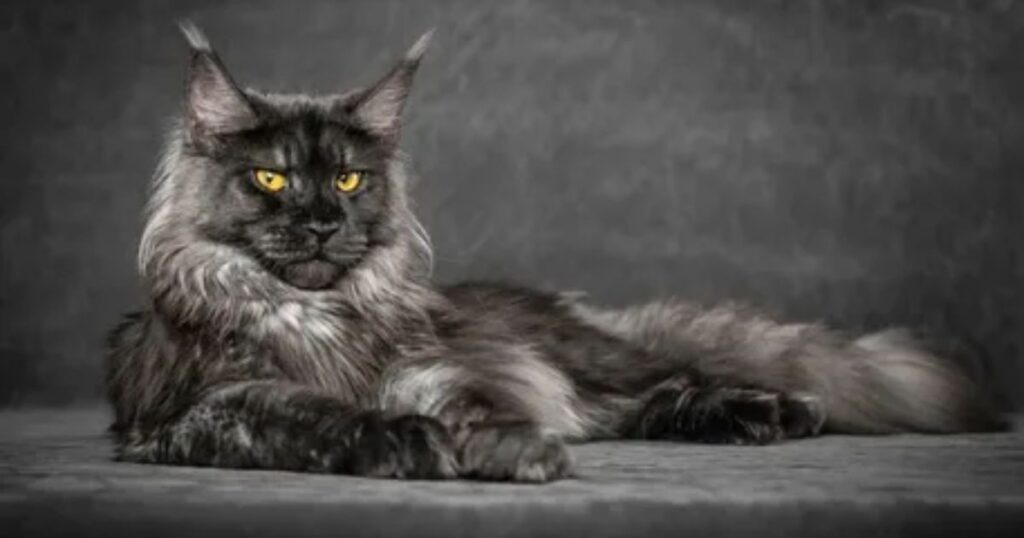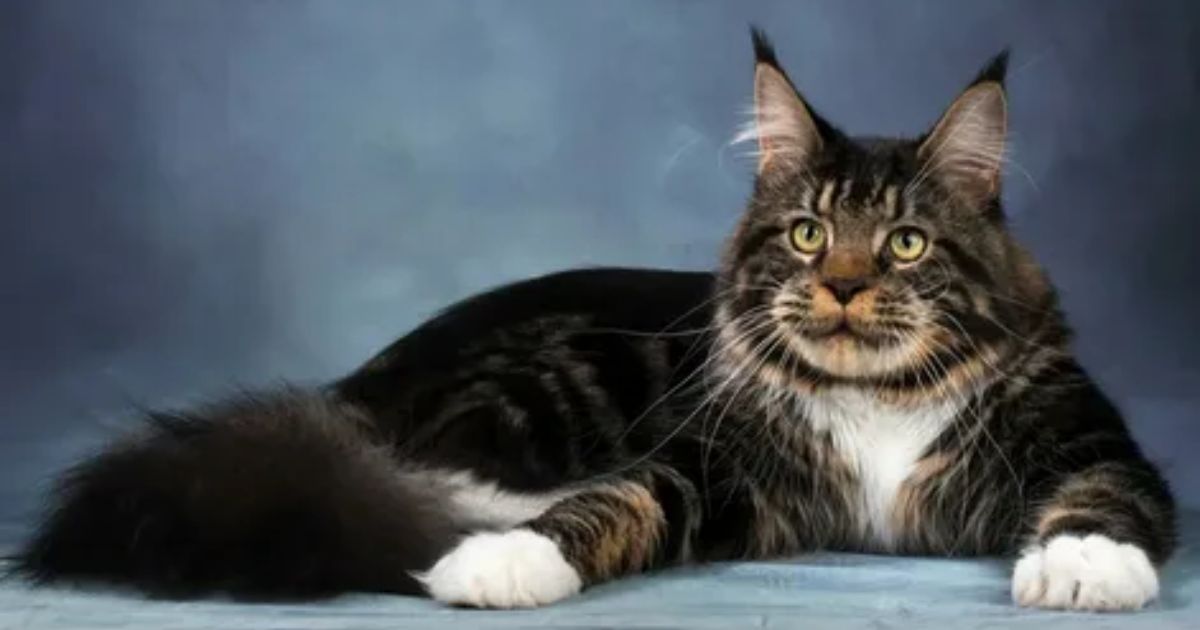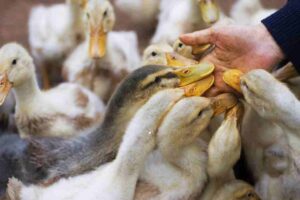The Maine Coon cat is one of the most beloved and recognized breeds in the feline world. Known for their impressive size, tufted ears, and playful personalities, these gentle giants have captured the hearts of cat lovers everywhere.
A common question among prospective owners and enthusiasts is, “What is the Maine Coon lifespan?” While these cats are generally healthy, understanding the factors that influence their lifespan can help ensure a long and happy life for your furry companion. This article will delve into the Maine Coon lifespan, health considerations, care tips, and lifestyle factors that contribute to their longevity.
The Average Lifespan of Maine Coons

The average lifespan of a Maine Coon cat typically ranges from 12 to 15 years, although many can live beyond 15 years with proper care. Factors such as genetics, diet, environment, and healthcare can significantly impact their longevity. For pet owners looking to enhance the health and lifespan of their furry companions, it’s essential to focus on their overall wellbeing and avoid common pitfalls.
To learn more about pet care and decision-making, you can check out this insightful article on why some dog breeds, like the Shih Tzu, may not be the best choice for everyone: Why Shih Tzus are the Worst Dog.
Lifespan Comparison with Other Breeds
To provide context, let’s compare the average lifespan of Maine Coons with other popular cat breeds:
| Cat Breed | Average Lifespan (Years) |
|---|---|
| Maine Coon | 12 – 15 |
| Siamese | 15 – 20 |
| Persian | 12 – 17 |
| Ragdoll | 12 – 15 |
| British Shorthair | 12 – 20 |
As shown in the table, Maine Coons have a lifespan comparable to many other breeds, but with proper care, they can live well into their late teens nightingale bird symbolism.
Factors Influencing Maine Coon Lifespan

Several factors can influence the lifespan of a Maine Coon cat.
1. Genetics
Genetics play a crucial role in determining the lifespan of Maine Coons. Responsible breeders will screen for hereditary conditions and breed for longevity. Common genetic issues that can affect Maine Coons include:
- Hypertrophic Cardiomyopathy (HCM): A heart condition that is common in many cat breeds, including Maine Coons. Regular veterinary check-ups can help monitor heart health.
- Hip Dysplasia: A genetic condition where the hip joint doesn’t fit properly into the hip socket, which can lead to arthritis.
- Spinal Muscular Atrophy (SMA): A genetic disorder affecting the spinal cord’s motor neurons, leading to muscle weakness pet information cat breed maine coon.
2. Diet and Nutrition
Providing a balanced diet is essential for a Maine Coon’s health and longevity. Here are some dietary considerations:
| Food Type | Benefits |
|---|---|
| High-Quality Protein | Supports muscle growth and maintenance. |
| Omega Fatty Acids | Promotes skin and coat health. |
| Essential Vitamins | Supports overall immune function. |
Feeding your Maine Coon a high-quality, protein-rich diet formulated for their life stage (kitten, adult, or senior) will help ensure they receive the necessary nutrients for a healthy life.
3. Regular Veterinary Care
Routine veterinary visits are vital for monitoring your Maine Coon’s health. Regular check-ups can help catch potential health issues early, allowing for timely intervention. Key aspects of veterinary care include:
- Vaccinations: Keeping your cat up to date on vaccinations helps prevent common feline diseases.
- Parasite Control: Regular treatments for fleas, ticks, and worms can prevent health complications.
- Dental Care: Routine dental check-ups and cleanings can prevent periodontal disease, which is common in cats.
4. Exercise and Mental Stimulation
Maine Coons are known for their playful and active nature. Providing ample opportunities for exercise and mental stimulation is crucial for their physical and mental well-being. Here are some tips:
| Activity | Benefits |
|---|---|
| Interactive Play | Encourages physical activity and strengthens the bond between pet and owner. |
| Puzzle Toys | Stimulates mental activity and prevents boredom. |
| Climbing Structures | Satisfies their natural instinct to climb and explore. |
Engaging your Maine Coon in regular playtime can help maintain a healthy weight and prevent obesity-related health issues.
5. Environment
The environment in which your Maine Coon lives can also impact its lifespan. A safe, stress-free home contributes to overall well-being. Here are some considerations:
- Indoor vs. Outdoor: Keeping your Maine Coon indoors significantly reduces the risk of accidents, diseases, and predator attacks. Indoor cats generally live longer than outdoor cats.
- Safe Space: Create a safe and comfortable environment with cozy resting spots, scratching posts, and climbing trees. Reducing stress is crucial for longevity.
Signs of Aging in Maine Coons

As your Maine Coon ages, it’s essential to recognize the signs of aging to provide appropriate care. Common signs of aging may include:
- Decreased Activity: Older Maine Coons may become less active and prefer to rest more.
- Changes in Appetite: A decrease in appetite or changes in eating habits could indicate health issues.
- Weight Loss: Unexplained weight loss can be a sign of underlying health problems.
- Grooming Changes: Older cats may groom themselves less frequently, leading to matting or poor coat condition.
Caring for Senior Maine Coons
As Maine Coons age, they may require special care to maintain their health and comfort. Here are some considerations for caring for senior Maine Coons:
1. Adjusted Diet
Senior Maine Coons may benefit from a diet formulated for older cats. These diets typically have lower calories and added nutrients to support joint health and maintain a healthy weight.
2. Regular Health Check-ups
In addition to annual vet visits, senior Maine Coons may require more frequent check-ups to monitor for age-related health issues. Discuss a suitable schedule with your veterinarian.
3. Comfortable Living Conditions
Ensure that your home is comfortable for your aging Maine Coon. Provide soft bedding, easy access to food and water, and a litter box that is easy to enter and exit.
4. Gentle Exercise
Encourage gentle exercise to maintain mobility. Short play sessions and easy access to climbing structures can help keep them active without overexertion.
The Role of Spaying/Neutering
Spaying or neutering your Maine Coon can significantly impact their health and lifespan. Here are some benefits:
- Reduced Risk of Certain Diseases: Spaying females can prevent uterine infections and breast tumors, while neutering males can prevent testicular cancer.
- Behavioral Benefits: Neutered males are less likely to exhibit territorial behaviors, reducing the risk of fights and injuries.
- Population Control: Spaying and neutering help reduce the number of unwanted litters, contributing to the overall health of the feline population.
Conclusion
The Maine Coon lifespan can be influenced by various factors, including genetics, diet, healthcare, and environment. With an average lifespan of 12 to 15 years, these magnificent cats can thrive for many years with proper care and attention. By providing a balanced diet, regular veterinary check-ups, ample exercise, and a safe environment, you can ensure that your Maine Coon lives a long, healthy, and happy life.
Understanding the unique needs of this breed will help you become a responsible and loving cat owner, enriching the lives of both you and your feline companion. Whether you already have a Maine Coon or are considering adopting one, their loyalty and affectionate nature will undoubtedly bring joy to your life for years to come.
- Male Black Widow Spider Markings - March 23, 2025
- Mexican Red Headed Bird: A Brilliant Avian Wonder - January 16, 2025
- Can Turkeys Eat Bread? - January 15, 2025








